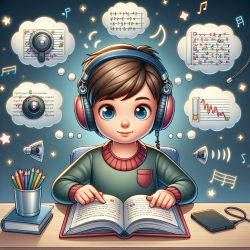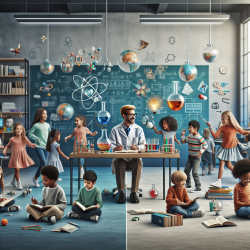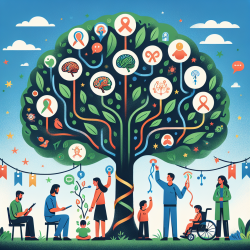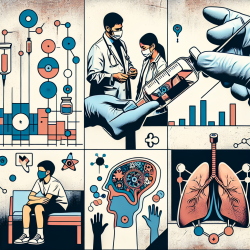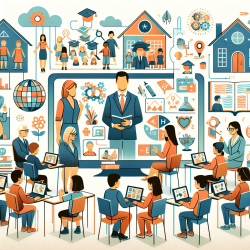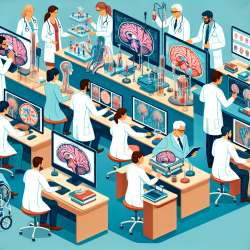Introduction
In the ever-evolving field of educational psychology, gratitude has emerged as a pivotal factor influencing adolescents' subjective well-being in school. A recent study titled "Gratitude and Adolescents’ Subjective Well-Being in School: The Multiple Mediating Roles of Basic Psychological Needs Satisfaction at School" provides compelling insights into how gratitude can be leveraged to enhance students' school experiences. This blog explores how practitioners can apply these findings to improve outcomes for children.
The Power of Gratitude
Gratitude is more than just a fleeting emotion; it's a powerful tool that can significantly enhance students' subjective well-being (SWB) in school. The study found that gratitude positively correlates with adolescents' SWB, which includes school satisfaction and affective experiences in school. These findings align with previous research indicating that gratitude can lead to increased happiness and positive emotions in various life domains.
Basic Psychological Needs as Mediators
The study highlights the mediating role of basic psychological needs—relatedness, competence, and autonomy—in the relationship between gratitude and SWB. Satisfaction of these needs not only enhances overall well-being but also acts as a conduit through which gratitude influences SWB in school.
- Relatedness: Gratitude fosters a sense of belonging and connection with peers and teachers, satisfying the need for relatedness.
- Competence: It enhances students' perception of their abilities, fulfilling the need for competence.
- Autonomy: While gratitude does not directly satisfy autonomy needs, it does so indirectly through relatedness and competence.
Practical Applications
For practitioners, these findings suggest several actionable strategies:
- Gratitude Interventions: Implement activities like gratitude diaries, where students list things they are thankful for, to cultivate a habit of gratitude.
- Enhancing Relatedness: Foster a supportive school environment where students feel connected to their peers and teachers.
- Building Competence: Encourage activities that allow students to demonstrate and develop their skills, thereby boosting their confidence.
Encouraging Further Research
While the study provides valuable insights, it also opens avenues for further research. Future studies could explore the long-term effects of gratitude interventions and examine other potential mediators like self-esteem. Cross-cultural studies could also assess the universality of these findings.
Conclusion
Gratitude is a simple yet powerful tool that can transform students' school experiences. By understanding and applying the mediating roles of basic psychological needs, practitioners can create environments that foster well-being and academic success. For those interested in delving deeper into this research, I highly recommend reading the original study.
To read the original research paper, please follow this link: Gratitude and Adolescents’ Subjective Well-Being in School: The Multiple Mediating Roles of Basic Psychological Needs Satisfaction at School.



